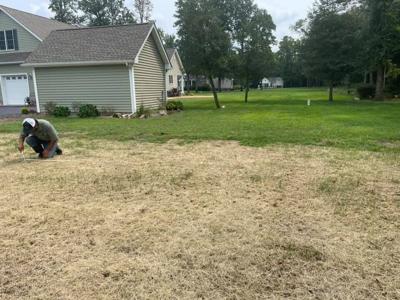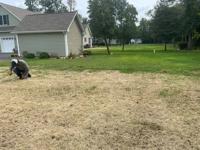SUSSEX, Del. - Has your lawn turned color from green to brown in a matter of days? If so, your yard may be infested with army worms.
These insects arrived in Southern Delaware in late July. Its been reported that the army worms have destroyed grasses in Milton, Milford and Lewes. Entomologist from the University of Delaware Cooperative Extension, David Owens, said the army worm will be here likely until the first frost. They are considered a tropical species and gravitate to warmer climates.
Owens said, "It is an agricultural pest. And this year were having a big outbreak of it and in which its causing issues in lawns, sod and turf. Entomologist across the mid-Atlantic and the mid-West described this as the worst outbreak they have seen in their careers."
Army worms are a species of caterpillars who typically feed on sod, rye, corn, pastured grass, turf, bluegrass, and other grasses and crops. As you can see in the photo above, army worms are very selective when it comes to the type of grass they feed on.
Female army worms can lay over 1,000 eggs at a time. Once the eggs hatch, they turn into caterpillars and then do most of their feeding three to four days before turning into a moth.
Dianne Deeney of Milford saw her lawn turn from picture perfect to a disaster thanks to an armyworm invasion.
"On a Sunday we had a family dinner and our yard was gorgeous," Deedey said. "And then by Tuesday we started seeing brown spots. And literally by Wednesday and early Thursday, the backyard was destroyed. It happen very quickly."
Due to the type of grass on her property, the army worms were attracted to it. However, her neighbors grass went untouched. This was seen throughout Deedey's neighborhood.
Owens said one way to test if your yard has been infested with armyworms is to pour a gallon or two of soapy water onto a patch of grass and see if the caterpillar is present, it will immediately rise to the surface. Also, another sign of army worms is if your lawn attracts birds. Birds tend to eat this species of caterpillar.
The University of Delaware Cooperative Extension recommended contacting them for further information, questions or concerns regarding this invasive species. For a direct contact, John Emerson who is the Turf Grass Nutrient Management extension agent is available to help. Email jremer@udel.com or contact him at (302) 730-4000



